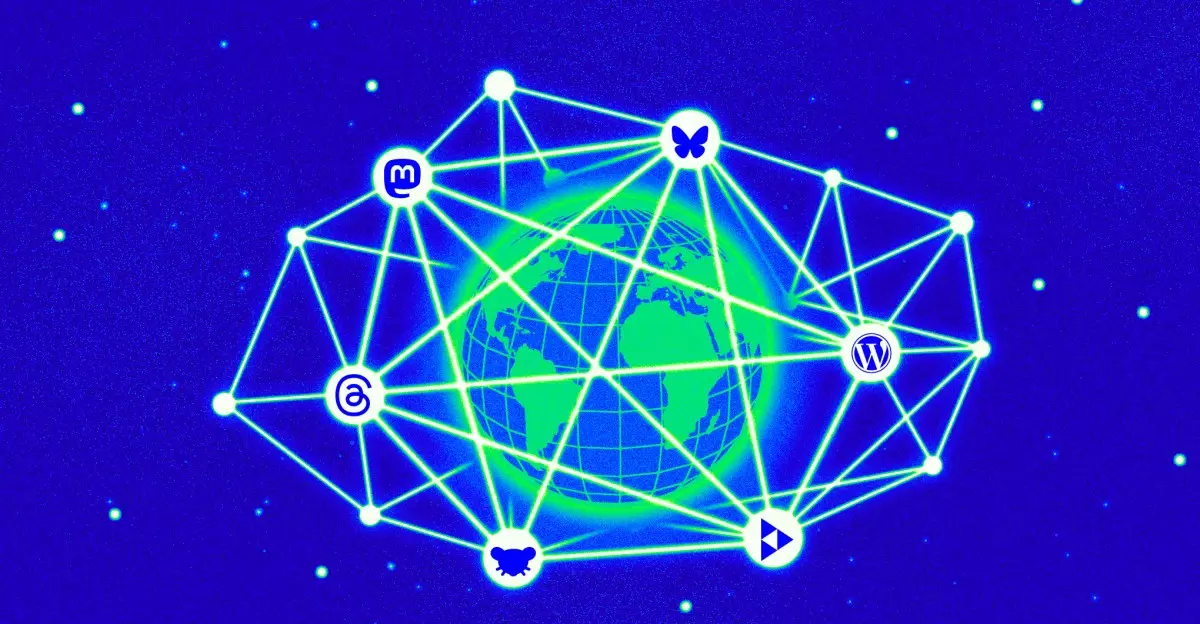In a rapidly evolving digital landscape, innovative platforms like Bonfire Social, Channel.org, and Bounce are redefining how we interact within the open web. The annual FediForum conference has emerged as a pivotal venue for exploring advancements in the decentralized social network ecosystem, showcasing a plethora of groundbreaking applications. This year’s conference reiterated the potential for communities to flourish in a decentralized environment, echoing the significance of user autonomy and customizable interactions.
Each of these platforms demonstrates a commitment to fostering inclusive social spaces that prioritize user agency, a principle that stands in stark contrast to the often top-down approaches of mainstream social media giants. In this context, Bonfire Social emerges as a key player, primarily designed to cultivate unique digital communities, each molded by the distinct governance models and aesthetic preferences of its users.
The Birth of Bonfire Social: A Community-Centric Approach
Bonfire Social’s recent launch of version 1.0 marks an exciting milestone in its mission to enhance community engagement. Its framework offers a customizable suite of features—including tailored feeds, profiles, and threaded discussions—that empower users to create an environment that feels personal and relevant to their interests. By federating with established networks such as Mastodon and Peertube, Bonfire fosters an interconnected ecosystem where diverse communities can thrive.
What makes Bonfire particularly noteworthy is its emphasis on diversity within community structures. The different “flavors” of the platform being developed, including Bonfire Community for private groups and Open Science for academic collaboration, reflect a sincere understanding of varied user needs. This targeted approach exemplifies a shift towards more democratic digital spaces, where the focus is on community needs rather than corporate interests.
Channel.org: Crafting the Perfect Feed
Meanwhile, Channel.org seeks to refine how we consume content across the decentralized web. In an environment where the overwhelming amount of information can be alienating, Channel.org offers users the ability to curate their experience by tracking specific hashtags and accounts. This kind of tailored engagement transforms social media from a passive consumption mode into an active, participatory process.
By allowing users to block irrelevant content and prioritize topics of genuine interest, Channel.org epitomizes the future of social media—one where users can dictate their interactions rather than be dictated to. Operating on a customized Mastodon server, Channel.org not only provides a more manageable social feed but also contributes to reduced instances of toxicity through built-in filters.
These developments address a persistent issue in contemporary social media: the prevalence of harassment and irrelevant noise. By creating a space that promotes thoughtful curation, Channel.org reflects a newfound understanding of user psychology and preferences.
Seamless Transitions with Bounce
In addition to enhancing user experiences within existing networks, Bounce offers a novel solution for transitioning users between platforms. With the rise of Bluesky and its growing user base, many individuals find themselves grappling with the challenge of maintaining social connections while exploring new environments. Bounce simplifies this process by enabling users to migrate their Bluesky accounts to Mastodon seamlessly, preserving their existing follower base in the process.
This innovation is more than a mere convenience; it signifies a broader trend towards emphasizing user loyalty and continuity in an era marked by rapid technological change. By addressing the often-overlooked complexities of social media transition, Bounce underscores the importance of ensuring that users feel secure as they navigate the digital landscape.
The Future of Decentralized Social Media
As we examine the trajectories of Bonfire Social, Channel.org, and Bounce, it becomes clear that the open web is evolving to prioritize user-centric design and engagement. The lessons emerging from platforms showcased at FediForum suggest a collective push towards nurturing spaces where individuals can flourish both personally and communally. These services aren’t merely technological innovations; they represent a philosophical shift in how we conceptualize social interaction in digital formats.
In a time when conventional platforms often default to algorithms that prioritize engagement over user well-being, the rise of these decentralized applications encapsulates a powerful response. Each innovation focuses on not just improving user experience but genuinely amplifying the voices of diverse communities. As these platforms continue to grow and evolve, they may very well redefine the standards of digital interaction for years to come.

